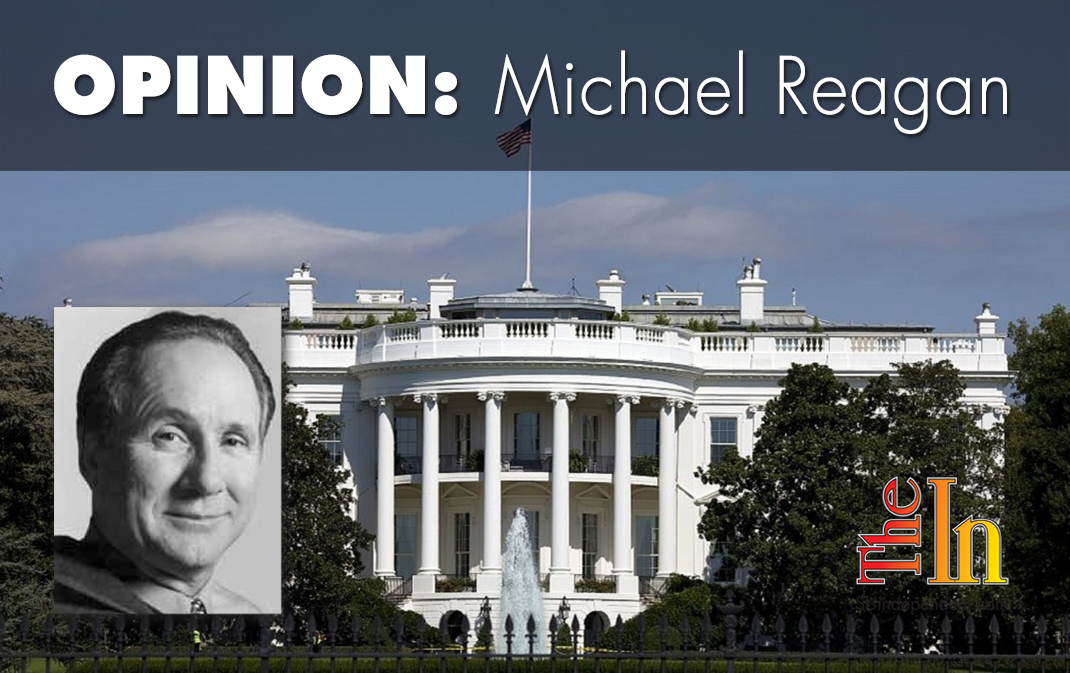
Resistance in the White House
By Michael Reagan
The stories of chaos, craziness, and betrayal going on inside the Trump White House are nothing to worry much about.
White House staffers attempting to influence, question, or thwart a president’s ideas or goals are as old as George Washington, Richard Nixon, or Ronald Reagan.
As we’ve recently seen, it’s just a lot easier today for unnamed White House insiders to get their criticism or embarrassing stories instantly published.
It doesn’t matter how dubious the journalism is, or who writes it. If it’s anti-Trump, it’s always fit to print.
Bob Woodward’s gossipy best-seller “Fear” was built mostly on anonymous sources, unattributed quotes, or secondhand anecdotes. Omarosa’s crazy White House tell-all “Unhinged” was only slightly less credible.
But the New York Times hit a new low in its war on Trump last week.
It published an anonymous op-ed piece written by a Trump adviser who claimed that he and some of his fellow White House “resistance” members were so concerned with the president’s actions and mental state that they contemplated using the 25th Amendment to remove him.
Maybe it’s all true. Maybe it’s all BS. We’ll find out the real story someday, but it’s certainly not new.
After my father was shot in 1981, some of his top advisers were seriously worried about his mental stability.
According to Bill O’Reilly in “Killing Reagan,” they considered using the 25th Amendment to remove him on grounds of mental incapacity and even gave him a test.
My father passed the test with flying colors and, according to the history books, did his job pretty well afterwards.
If the Washington Post had published an anonymous op-ed from one of my father’s worried advisers at the time, I bet history would not have turned out so well.
No one read about those concerns my father’s advisers had about his mental state in a New York Times op-ed piece as they were occurring.
Likewise, no one read about how he trumped his top advisers on his decision to invade Grenada.
When he called a White House meeting to vote on the idea, the final tally was 7–3 to not invade. My father was one of the three.
Two days later, the world woke up to see TV images of American forces capturing the island.
When one of his shocked advisers called and said, “Mr. President, I thought we had a vote and we decided not to go,” my father said, “Yes. We did. But my vote cancelled your seven.”
No one at the time read about that “fight” with his White House staff in the papers, just as they never learned how his advisers tried to prevent him from speaking two of his most famous lines.
They kept deleting “Mr. Gorbachev, tear down that wall” from his Berlin Wall speech, and they also tried to stop him from referring to the Soviet Union as “the Evil Empire.”
The most important “fight” my father had with his advisers came in 1986, however, when he met with Mikhail Gorbachev at the nuclear missile summit in Reykjavik.
Everyone in the liberal media desperately wanted him to sign a nuclear arms treaty with the USSR — any treaty.
My father’s staffers were worried about his political legacy. Preferring a weak deal to no deal at all, they urged him to sign a treaty he did not think was good enough.
My father shocked his advisers, the media, and most everyone in the Free World by saying “nyet” to Gorby in Iceland and walking out of the summit without signing anything.
Everyone in the liberal media thought he was nuts, of course. But his decision turned out to be a great geopolitical move that became a key turning point in the Cold War.
If the Washington Post had published an anonymous op-ed from one of my father’s worried advisers at the time, I bet history would not have turned out so well.
The viewpoints expressed above are those of the author and do not necessarily reflect those of The Independent.
How to submit an article, guest opinion piece, or letter to the editor to The Independent
Do you have something to say? Want your voice to be heard by thousands of readers? Send The Independent your letter to the editor or guest opinion piece. All submissions will be considered for publication by our editorial staff. If your letter or editorial is accepted, it will run on suindependent.com, and we’ll promote it through all of our social media channels. We may even decide to include it in our monthly print edition. Just follow our simple submission guidelines and make your voice heard:
—Submissions should be between 300 and 1,500 words.
—Submissions must be sent to editor@infowest.com as a .doc, .docx, .txt, or .rtf file.
—The subject line of the email containing your submission should read “Letter to the editor.”
—Attach your name to both the email and the document file (we don’t run anonymous letters).
—If you have a photo or image you’d like us to use and it’s in .jpg format, at least 1200 X 754 pixels large, and your intellectual property (you own the copyright), feel free to attach it as well, though we reserve the right to choose a different image.
—If you are on Twitter and would like a shout-out when your piece or letter is published, include that in your correspondence and we’ll give you a mention at the time of publication.
Articles related to “Resistance in the White House”
Mormon’s petition demands New York Times apologize and rewrite LDS President Monson’s obituary
Mainstream media vs. alternative media in the Clinton/Trump election



